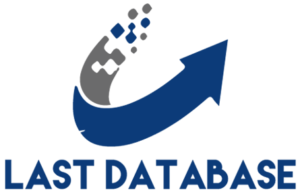In the digital age, privacy is more than a right, it is a central element of customer trust and business integrity. But how do you ensure that you can use the latest marketing and data techniques without violating privacy laws? This is an art form these days. This responsibility often falls to data specialists, web developers, website owners and campaign managers.
Privacy is a vital consideration that you cannot ignore. It is crucial to comply with legal requirements and at the same time protect the privacy of users. As a marketer, you have access to a range of tools and techniques, but the question remains: are they all ethical? This article focuses on some of the most relevant topics in today’s privacy discussion:
Data Privacy Framework & Google Analytics
Cookie banners
Google Consent Mode & Enhanced Conversions
Server-side Tagging
1. Data Privacy Framework & Google Analytics
In July, a remarkably positive message came from Brussels . It is again permitted to send personal data from the EU to the US under the so-called EU-US Data Privacy Framework . The decision was announced in 2022, after a major commotion in Europe about the personal data that was sent to the US by Google and Meta, among others. The American security services would be able to easily view this data, which led to lawsuits at the European Court that declared previous agreements ( Data Privacy Shield and Safe Harbor deal ) invalid.
The new agreements will allow security services to access data only if strictly necessary and proportionate. US companies will once again be allowed to receive personal data from the EU without having to meet additional requirements, provided they are affiliated with the Data Privacy Framework network.
However, privacy activist Max Schrems has already list of malta consumer email spoken out against the new agreements. And he plans to challenge them again before the European Court. A path in which he has already achieved success in the past. Nevertheless, this outcome remains uncertain for the time being.
Practical consequences of the new rules
The question remains what this means for the use of online marketing: a look back & trends for 2024 services like Google Analytics (GA). It seems that the Data Privacy Framework provides sufficient protection for the use of GA, the ban of which in some EU countries was mainly due to the unlawful transfer of EU data to the US. However, the use of GA remains under fire in some countries. Often because of other violations of the GDPR, such as the lack of cookie banners that lead to the loading of data without consent.
At the time of writing this article, the Dutch Data Protection aob directory Authority (NAP) has not yet made a final decision on banning Google Analytics. Other countries such as Austria, France, Denmark and Italy have already imposed a ban on the use of Google Analytics. It is important to monitor developments and legislation per country and to seek legal advice, especially if you actively manage websites in various EU countries. For Dutch websites, it is important to follow the advice of the AP.
If you really don’t want to wait for the NAP decision, you can of course also choose to switch.







